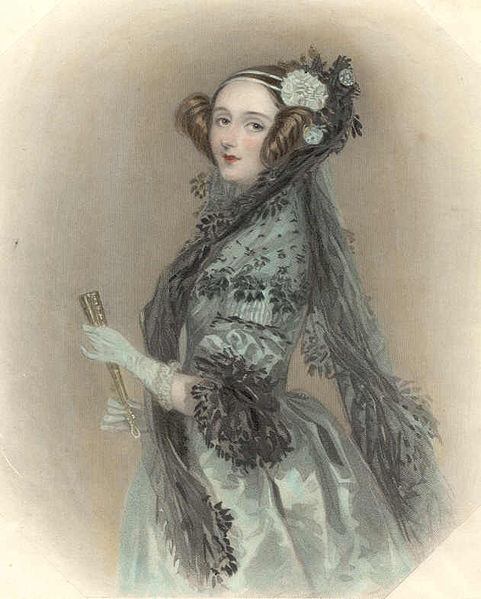By James Dacey

Portrait of Ada Lovelace (1838)
Science songs in London and a series of “lightning talks” in the Equadorian capital Quito are among the many events being held today around the world to mark Ada Lovelace Day 2013. The annual celebrations, which are now in their fifth year, are held to recognize the achievements of women in science, technology, engineering and maths (STEM).
The day’s namesake Ada Lovelace is often referred to as the world’s first computer programmer. Born in 1815, Lovelace was a child of the Romantic poet Lord Byron, and was raised by her mother who encouraged her daughter to develop an interest in science, logic and mathematics. Lovelace excelled and became friends with the mathematician Charles Babbage at the University of Cambridge, who had already started drawing up plans for his famous calculating machines.
Lovelace was fascinated by Babbage’s idea of an Analytical Engine and she began to speculate about how such a machine could transform the world. In the process, Lovelace developed what have been referred to as the world’s first computer programs. Tragically, however, her ground-breaking contributions were cut short because she died of cancer in 1852 aged just 36.
Ada Lovelace Day was founded in 2009 by the social technologist and writer Suw Charman-Anderson “as a response to online discussions about the lack of women on stage at tech conferences”. The idea behind the day is to raise the profile of women involved in STEM by creating role models to encourage female students and professional scientists in their careers.
Today (15 October), the main events are focused around Imperial College London, which is hosting an evening of talks and performances. Compering the event is the science communicator and stand-up comedian Helen Arney, who describes herself as an “ex physics graduate and a geek songstress”. Take a look at this video, which features clips of Arney performing science songs with her ukulele and talking about how she fell in love with science through television shows such as the now defunct Tomorrow’s World.
Meanwhile, a mass Wikipedia “editathon” is taking place at the University of Oxford in an attempt to raise the profile of women’s contributions to science. Attendees will be shown the ropes about how Wikipedia editing works, then invited to improve the coverage of individuals, events and resources related to women in science. In the evening at Oxford, there will also be a celebration of women in astronomy, hosted by Dame Jocelyn Bell Burnell who discovered the first radio pulsars in the 1960s. Bell Burnell was the first female president of the Institute of Physics, which publishes physicsworld.com.
Around the world, there will be events as far afield as Ecuador, where attendees at an event in Quito will be invited to give “lightning talks” on the theme of women working in information technology. In Uganda, an event is being held in Kampala to encourage the women in Africa to take up STEM as an educational and career choice. And if you’re looking for a more informal event, get yourself along to a place called Burger Bar in Chicago to meet with “geek friends to talk about women who inspire you”. Apparently, on Tuesdays they offer half-price chicken wings and $3 Goose Island beer!
• You may also be interested in this recent article we published about Laura Bassi, the 18th century Italian physicist. Bassi may well have been the first woman to have forged a professional scientific career.
Guidelines
Show/hide formatting guidelines
this text was deletedwhere people live in harmony with nature and animals</q>
Some text